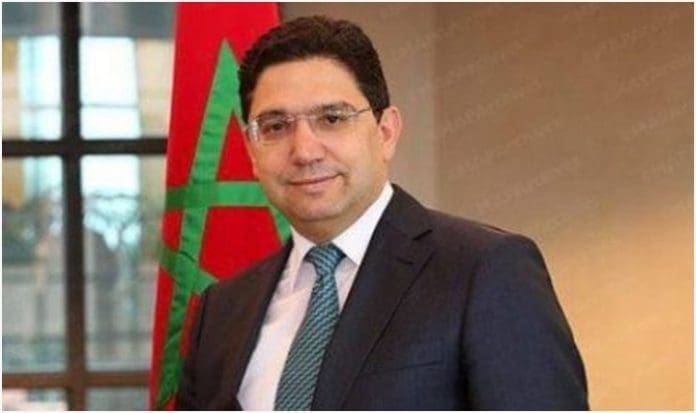“The Kingdom of Morocco and the European Union have successfully concluded, in a spirit of partnership and compromise, negotiations on the amendment of the agricultural agreement between the two parties,” Minister of Foreign Affairs, African Cooperation, and Moroccan Expatriates Nasser Bourita, said on Thursday.
In a statement made today in Rabat, the minister specified that “the signing will take place shortly in Brussels” and that, pending the finalization of internal procedures, “the agreement will be provisionally implemented as soon as it is signed.”
This agreement, he emphasized, “provides the necessary clarifications, in accordance with the Kingdom’s national fundamentals.” It falls in line with and embodies “the philosophy of the exchange of letters signed between the two parties in 2018,” to which “the overall framework of the new text remains faithful,” he added.
In this regard, the minister stated that “the agreement confirms the application of the preferential tariffs to the Southern Provinces granted by the EU under the Association Agreement with Morocco”, explaining that “in general, the market access conditions that apply to products from the North will apply to products from the Moroccan Sahara”.
The agreement also introduces technical adjustments concerning consumer information about product origin. Agricultural products from the Southern regions will bear labeling indicating their regions of production as “Laayoune-Sakia El Hamra” and “Dakhla-Oued Eddahab”, the minister explained.
Furthermore, the agreement recalls the EU’s position expressed in 2019 regarding the Moroccan Sahara, in which the Union positively took note of Morocco’s serious and credible efforts. Bourita added that the text also refers to the national positions subsequently adopted by several EU Member States, who have expressed their support for Morocco’s autonomy Initiative, in line with the dynamic driven by His Majesty King Mohammed VI.
“Of course, this is not a political agreement,” Bourita clarified. “It is a sectoral, commercial, and operational agreement. Nonetheless, it sends strong and clear signals.”
In this regard, the minister stated that “Thanks to the leadership of His Majesty King Mohammed VI, the Moroccan Sahara has become a zone of development, connectivity, and prosperity, emerging as a hub of stability and regional growth.”
He noted major global and regional powers’ interest in economic activities in the Moroccan Sahara, and their willingness to support trade and investment in the region and to help transform it into a bridge between Europe and Africa, and between the Mediterranean and the Atlantic.
For example, he recalled, “the strong statement made by the United States last week,” the “Morocco-France Economic Forum, scheduled to take place in Dakhla on October 9” and “the action planned by the British agency UK Export Finance.”
Similarly, the Agreement with the EU “makes a qualitative contribution at the national level” by contributing to agricultural GDP and the creation and retention of jobs, particularly in the Moroccan Sahara region, the minister added.
“Naturally, this Agreement reinforces the long-standing and solid strategic partnership between Morocco and the EU,” Bourita reaffirmed, stressing that Morocco is a reliable and credible partner for the EU to conduct most of its trade in Africa and the Arab world, amounting to over €60 billion annually, including industrial products, equipment, and agricultural products.
The minister also said that “His Majesty the King has always wished the Morocco-EU Partnership to be implemented through joint and concrete actions,” noting that “the commercial and agricultural sectors are certainly important thanks to their importance for the Kingdom’s economy, but our Partnership [with the EU] also extends to a wide range of areas: political, economic, social, and environmental, as well as the sectors of migration and mobility, security, digital, and culture.”
“Finally, at a time when the regional context is complex and crises are becoming structural, this incremental progress allows Morocco and the EU to approach their common future with serenity and to consider an ambitious and promising path,” Bourita said.
“We are currently in a position to deploy our full existing potential, be it to prepare for joint deadlines, to revitalize our political frameworks, such as the Association Council, or to lay the foundations for an even deeper strategic partnership that will guide our relations for years to come,” Bourita concluded.
Source: newsghana.com.gh









